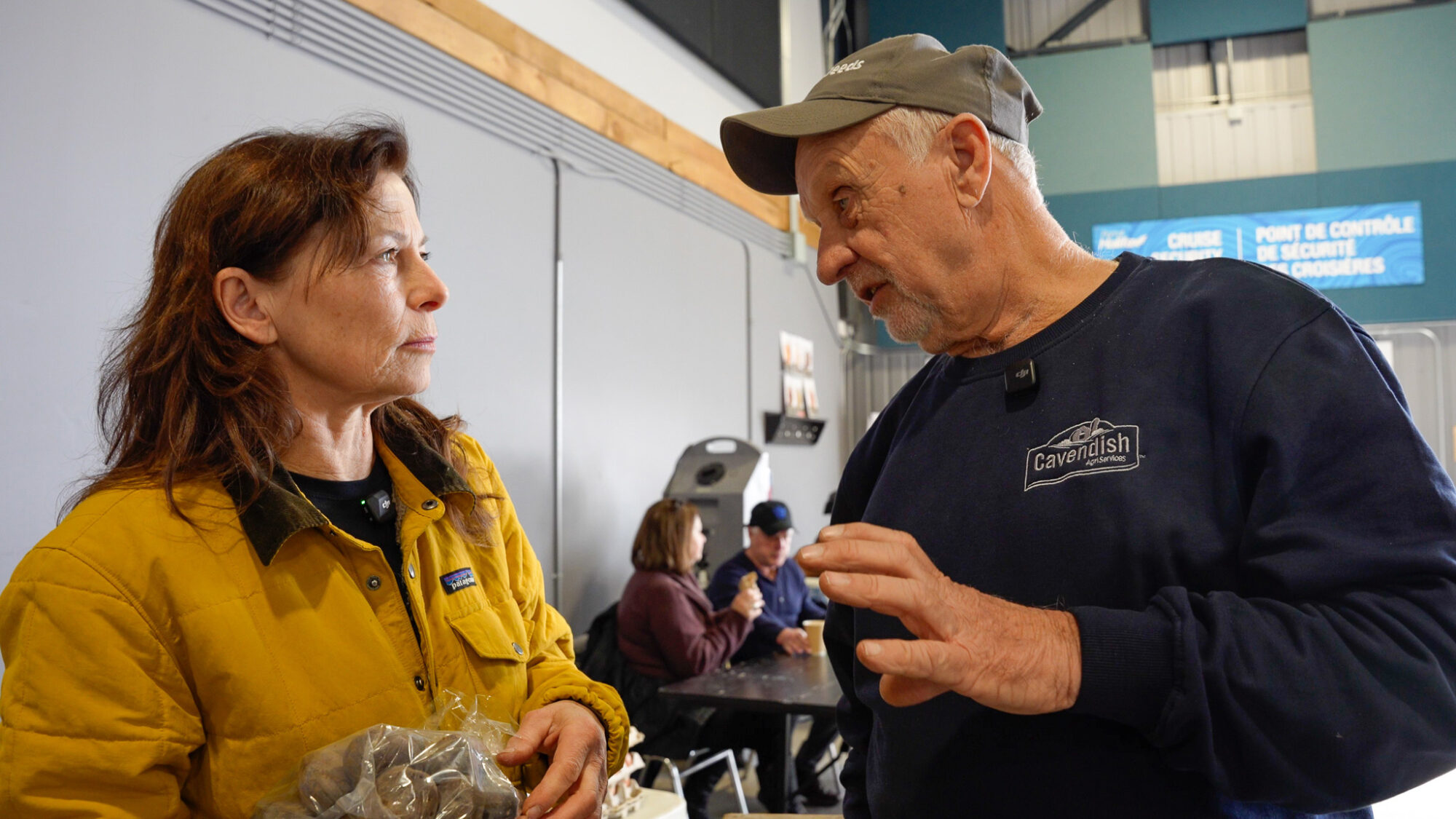Turning tariffs into triumph: The power of local sourcing
As tariffs on Canadian produce loom, restaurant owners like Lil MacPherson see an opportunity to reshape the food economy

caption
Lil MacPherson and Kevin Graham from Oakview Farms. MacPherson regularly purchases from the family-run business.With Nova Scotia importing nearly 90 per cent of its food, a Halifax restaurant owner said U.S. trade tensions are a wake-up call to rebuild the province’s food system before it’s too late.
“If all the restaurants started buying local, we could change the food system of Nova Scotia. We could change the food system in Canada,” Lil MacPherson told The Signal.
MacPherson, founder and co-owner of The Wooden Monkey in Halifax, said that by supporting local farms, restaurants can play a key role in reshaping the food economy.
She warned that Nova Scotia has just three days’ worth of food reserves, highlighting the province’s vulnerability. Strengthening local food systems, she said, is key to boosting food security, creating jobs and rebuilding farming infrastructure. Supporting local farms fosters a more resilient food network and promotes sustainable agriculture, improving public and environmental health.
“I’m probably the only excited person in Canada, but I knew this moment was coming,” MacPherson said, adding that the push for local sourcing will grow as supply chains falter. “This is our time. I think we’re going to prosper.”
Kevin Graham, owner of Oakview Farms in the Annapolis Valley, said that while it’s too early to tell how sales will change, he has noticed increased customer awareness and interest in buying local.

caption
Oakview Farms at the Halifax Seaport Market is a small, local producer of pesticide-freeproduce. They’re based in Kingsport, N.S. and their stall draws plenty of attention from market-goers.
“I’m kind of excited about this growing season to see how much that’s going to impact what we do and how people respond to it,” he said.
“Three to five decades ago, we were producing probably 70 to 80 per cent of what we were consuming in the province,” Graham said. “Now we’re down to about 10 or 12 per cent.”
He said he would like to see more local food production but noted it would require significant investment in infrastructure and government support.
Sylvain Charlebois, senior director of the Agri-Food Analytics Lab at Dalhousie University and co-host of The Food Professor podcast, said consumer interest in local food surges during periods of political uncertainty, but sustaining a buy-local movement won’t be easy.
“I don’t think it’s going to last,” he said. “Every three, four years, there’s always something that gets people to think Canadian, think local,” he said, referencing COVID-19, U.S. President Donald Trump’s first administration, and now his latest tariff threat.
Charlebois said real change depends on grocery stores, which are hesitant to disrupt supply chains. They might adjust if demand for Canadian products grows, but he doubts it will be permanent.
“People will move on. Trump will not be there forever,” he said.
MacPherson, however, is hopeful that change can start at the individual level, with consumers making conscious choices to shop at farmers’ markets and support local food systems.
“It makes me want to cry when I see farmers packing up their produce at the end of the market and taking it back to their farm,” she said. “We’ve got to pick that up. Especially with what’s going on in the world today, we don’t have a choice. If you want your kids to eat in the future, we have to eat our way there.”
About the author

Lola Drewery
Lola Drewery is a journalist and photographer in her second year in the BJH program.
